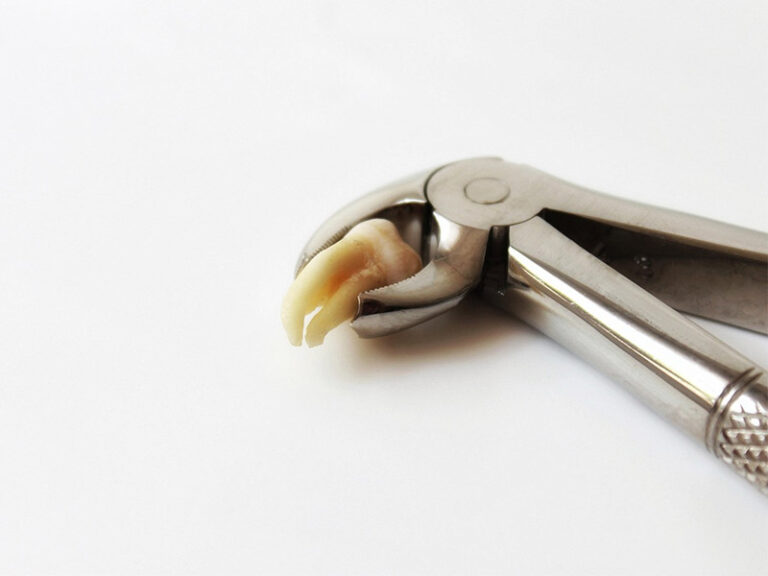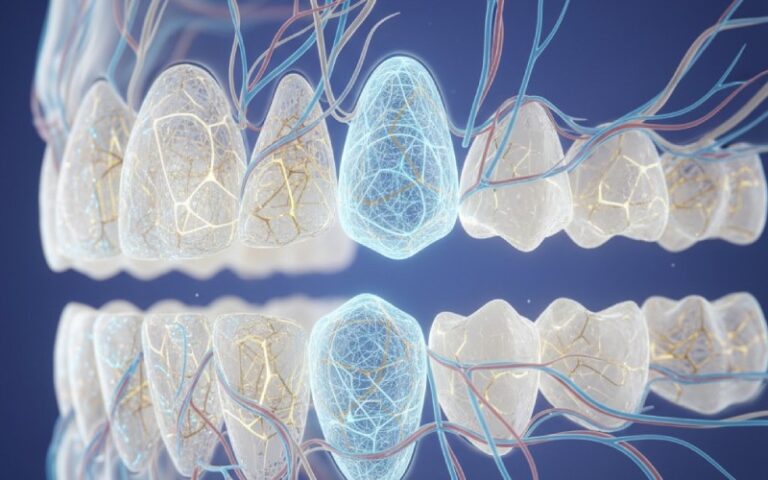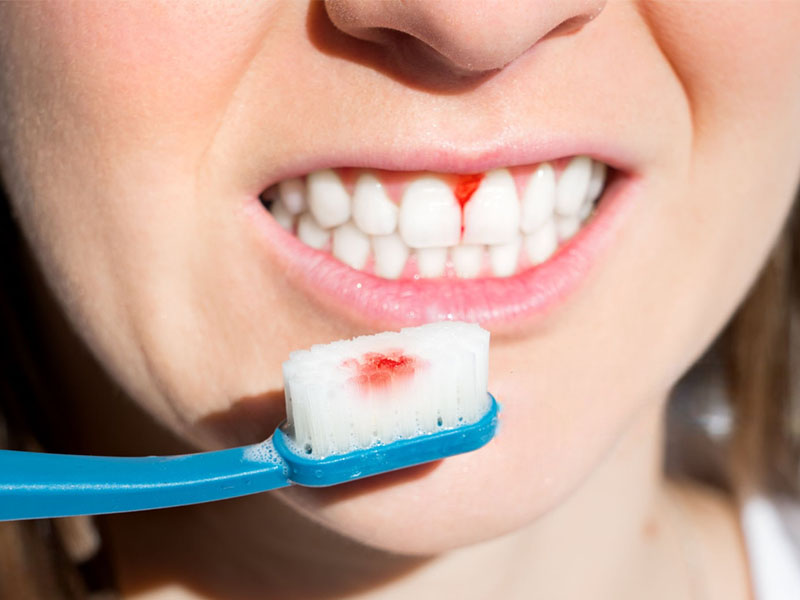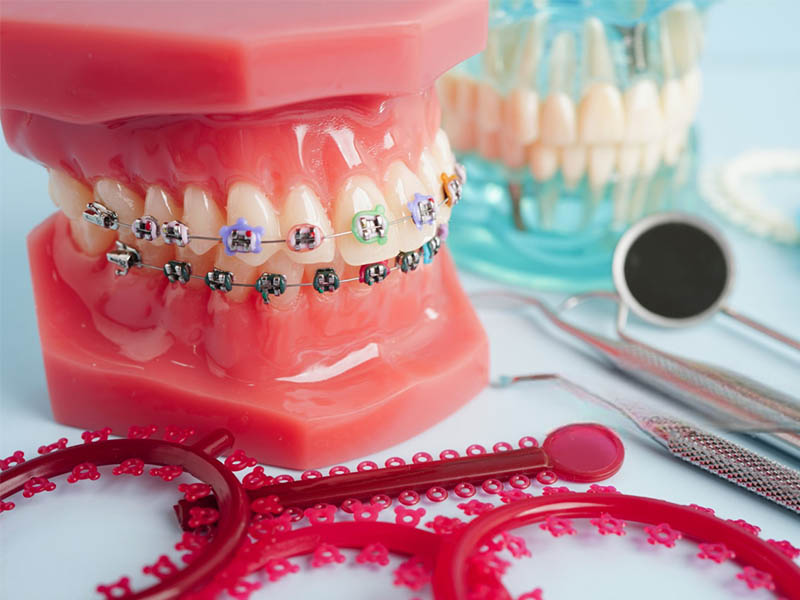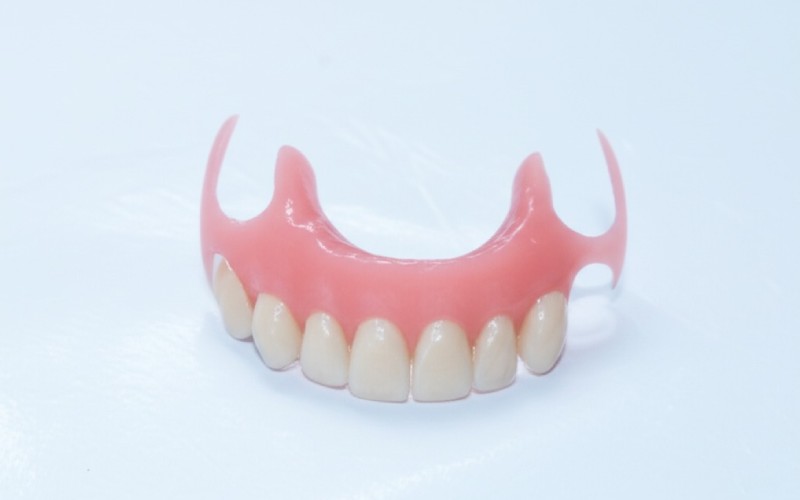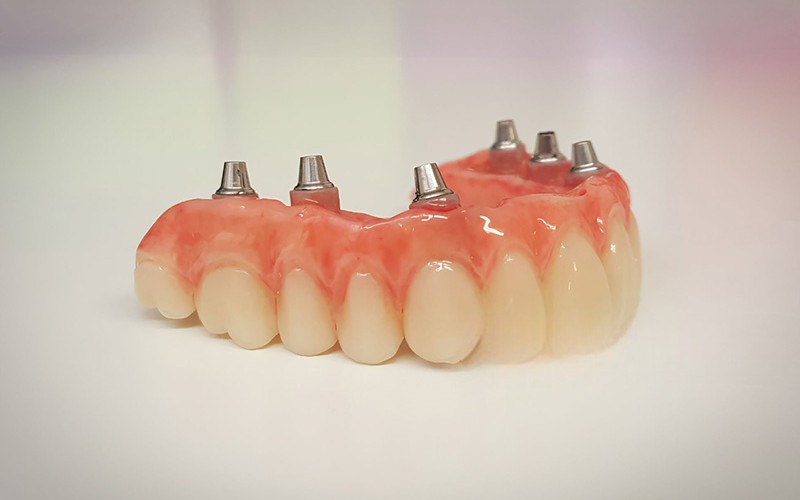
Dentures vs. Dental Implants: My No-Nonsense Guide to Choosing Your New Smile
Few decisions feel as personal or as big as choosing how to handle missing teeth. You’re not just picking a product; you’re choosing your confidence, your comfort, and how you’ll enjoy your meals for years to come. The choice often comes down to this: dentures and dental implants. This article will help you understand the real-world differences. We’ll look at the pros and cons of each, so you can have an honest conversation with your dentist and make the best choice for you.
Table of Contents
So, What Exactly Is a Denture?
Let’s start with the classic solution: the denture. For a long, long time, if you had tooth loss, a denture was your main option. A denture is a removable set of prosthetic teeth. Think of it as a custom-made dental prosthesis that you can take in and out of your mouth. They are designed to replace missing teeth, whether you need to replace one or more teeth with a partial denture or all the teeth in your upper or lower jaw with complete dentures. A denture is a well-known and trusted way to restore your smile.
A denture works by sitting on top of your gum tissue. For a full denture, suction helps hold it in place. For a partial denture, it often has clips that attach to your existing teeth for support. Sometimes, people use a special denture adhesive or glue to get a more secure fit. The main thing to remember is that dentures are removable. This is a key feature of this type of tooth replacement. While a modern denture is made to look natural, it doesn’t become a part of your body. This makes the denture an affordable, non-surgical choice to replace missing teeth.
A set of dentures can give you a full smile again. This kind of prosthetic is often less expensive than dental implants, which is a big reason many people choose them. If you are missing teeth, a denture provides a quick and effective solution. However, since the denture just rests on the gum, it doesn’t support the bone underneath. We will talk more about why that matters later. For now, just know that a denture is a great tool, but it’s a tool that sits on the surface.
And What Makes a Dental Implant Different?
Now, let’s talk about the dental implant. A dental implant is very different from a denture. Think of a dental implant as a man-made tooth root. It’s a small, screw-like post, usually made of titanium, that is surgically placed in the jawbone. This little post is designed to act just like the root of a natural tooth. It becomes a strong and sturdy foundation. This is a major difference when you compare a dental implant to a denture.
Once the dental implant is placed in your jawbone and has healed, your dentist attaches a connector to it. On top of that connector goes your new artificial tooth, which is usually a dental crown. The final result is a replacement tooth that looks, feels, and works very much like your natural teeth. Unlike a denture, a dental implant is not removable. It’s a permanent solution that becomes part of your jaw.
The goal of a dental implant is to create a tooth replacement that is as close to a natural tooth as possible. You can get a dental implant to replace a single tooth or multiple teeth. You can even get what’s called implant-supported dentures, where a few dental implant posts are used to securely anchor a full denture. This gives you the stability of a dental implant with the coverage of a denture. The key takeaway is that a dental implant connects directly to your bone.
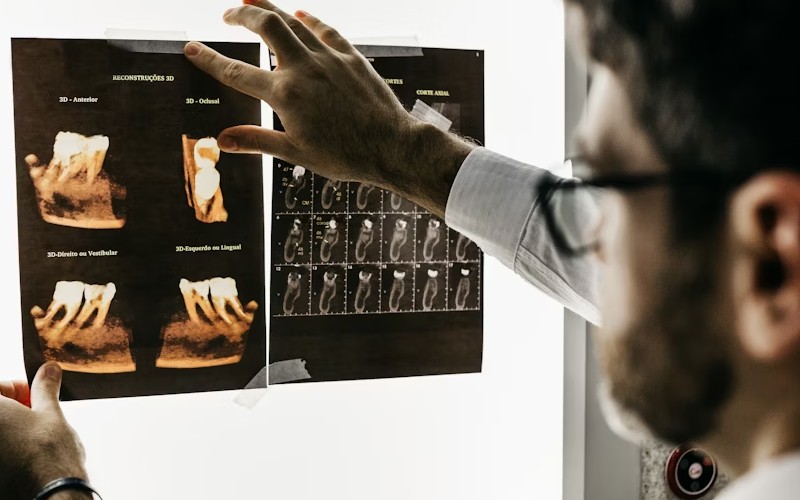
What’s the Big Difference Between Dentures and Dental Implants When I Eat?
This is where you really feel the difference. With a traditional denture, eating can be a challenge. Because dentures sit on top of your gum, they can slip out of place while eating or speaking. You might need to use a denture adhesive to keep your denture secure. Many people with a denture find they have to avoid hard or sticky foods. The chewing efficiency compared to natural teeth is much lower.
A dental implant, on the other hand, is a game-changer for eating. Because the dental implant is fused into your jawbone, it’s incredibly stable. It doesn’t move. It doesn’t slip. You can eat your favorite foods without worrying. Corn on the cob, apples, steak—you name it. A dental implant restores your chewing power to what it was with your natural teeth. This is because the force of your bite goes directly into your jawbone, just like it’s supposed to.
So, when we talk about dentures vs. dental implants, function is a huge part of the conversation. A denture provides a surface to chew on, but it can feel unstable. A dental implant gives you a strong, reliable tooth that feels like your own. For many, this freedom to eat normally is the biggest reason they choose a dental implant over a denture.
Are Dentures a Permanent Denture Solution for a Missing Tooth?
That’s a great question, and the answer is no. A denture is not a permanent solution in the same way a dental implant is. A denture is a prosthetic that you wear. First, dentures are removable, so you take them out every night to clean them and to let your gum tissue rest. This is very different from a dental implant, which stays in your mouth 24/7.
Second, your mouth changes over time. After you experience tooth loss, the jawbone in that area naturally starts to shrink because it’s no longer being stimulated by a tooth root. Since your denture sits on your gum and jawbone, as the bone changes, the fit of your denture will change too. This means that dentures often need adjustments or replacements every 5 to 10 years to make sure they fit correctly. A poorly fitting denture can cause sores on your gum and be uncomfortable.
So, while a denture can last for many years with proper care and maintenance, it’s not a one-and-done solution. You will likely need a new denture or adjustments as your mouth continues to change. It’s a commitment to ongoing dental care to ensure your denture remains comfortable and functional. This is a key part of the “dentures and implants” discussion.
How Do Dental Implants Work to Replace a Tooth?
The process for a dental implant is more involved than getting a denture, but the result is designed to last a lifetime. It starts with a consultation with your dentist to see if you are a good candidate. You need to have a healthy jawbone and be in good overall health. If you are, the dental implant procedure can begin. A dentist will surgically place the small titanium post into your jawbone where the missing tooth was.
After it’s placed, a healing period begins. This is the most amazing part. Over a few months, your jawbone actually grows around the dental implant and fuses to it. This process is what makes the dental implant so strong and secure. Once healing is complete, the dental implant has become a permanent part of your jaw, acting as artificial tooth roots.
Finally, your dentist will attach a custom-made dental crown to the implant post. This crown is the part you see, and it’s made to look just like your other teeth. The number of implants required depends on how many teeth you need to replace. You can replace a single tooth or multiple teeth this way. The end result is a strong, stable, and permanent tooth replacement option that feels just like one of your healthy teeth.
How Do a Denture and a Dental Implant Affect My Jawbone and Healthy Teeth?
This is one of the most important, but often overlooked, differences. Missing teeth can affect your jaw. When you lose a tooth, the jawbone that once supported it no longer gets the stimulation it needs. Over time, that bone begins to weaken and shrink. A traditional denture sits on top of the gum and does not stop this from happening. In fact, the pressure from a denture can sometimes speed up bone loss.
A dental implant, however, is a huge benefit to your oral health. Because the dental implant is placed in the jawbone, it stimulates the bone just like a natural tooth root does. This stimulation tells your body to keep sending nutrients to your jaw, which keeps the bone strong and healthy. This helps preserve your facial structure and prevents that sunken look that can happen after tooth loss. A dental implant helps keep your mouth healthy.
For a partial denture, the clasps can sometimes put pressure on the surrounding teeth that support it. A dental implant, on the other hand, stands on its own. It doesn’t rely on your existing teeth for support at all. This protects your remaining natural teeth from extra stress. This is a major long-term advantage of a dental implant compared to dentures.
Is a Dental Implant a Better Alternative to Dentures?
When you look at the pros and cons, for many people, the answer is yes. A dental implant is often considered the gold standard for tooth replacement. It offers a permanent solution that looks, feels, and functions like natural teeth. You don’t have to worry about them slipping, you can eat what you want, and they help maintain your jawbone health. From a purely functional standpoint, a dental implant is a superior alternative to dentures.
However, “better” depends on the person. A denture is a perfectly valid and effective treatment option for many. If you are not a candidate for surgery due to other health issues, or if cost is a major concern, then a denture might be the better choice for you. A denture can restore your smile and ability to chew, giving you back your confidence.
The best way to decide is to understand the advantages and disadvantages of each. A dental implant offers permanence and function. A denture offers affordability and a non-invasive process. Thinking about what matters most to you in a tooth replacement will help you and your dentist decide on the right treatment option for your oral health.
Dental Implants vs. Dentures: What About the Cost?
Let’s be direct: cost is a big factor. There is a significant price difference between dentures and dental implants. A denture is much less expensive than dental implants upfront. The materials and the process to make a denture are simpler, making it a more accessible option for many budgets. If you need to replace all the teeth in your upper or lower jaw, complete dentures are a very cost-effective way to do that.
A dental implant costs more. The dental implant procedure is a surgery, it uses high-tech materials like titanium, and it requires the expertise of a skilled dentist. The cost will also depend on the number of implants required. A single dental implant will cost more than a partial denture, and a full set of implant-supported dentures will cost much more than a traditional full denture.
However, it’s important to think about long-term value. While a denture is cheaper initially, dentures may need to be replaced or relined every few years, which adds to the cost over time. A dental implant is designed to last a lifetime with proper care. So, while the initial investment is higher, it may be more cost-effective in the long run. You must talk to your dentist about all the costs involved for both a denture and a dental implant.
How Do I Choose Between Dentures or Dental Implants?
Choosing the right solution comes down to a conversation between you and your dentist. You need to consider your health, your budget, and your lifestyle. Your dentist will examine your mouth, check the health of your gum and jawbone, and help you understand your options. They can tell you if you’re a good candidate for a dental implant or if a denture would be a better fit.
Think about your daily life. Do you want a tooth replacement you never have to think about? If so, a dental implant might be for you. Are you comfortable with a removable prosthetic that requires daily cleaning outside of your mouth? Then a denture could work well. Do you want to eat anything you like without a second thought? The dental implant has the edge here.
Ultimately, this is your decision. My advice is to gather all the information you can. Ask your dentist tons of questions. Understand the pros and cons of a denture and a dental implant. Consider the short-term cost versus the long-term benefits. Choosing between dental implants vs dentures is a major decision, but with the right information, you can make a choice that will make you smile for years to come.

What Should I Expect for Proper Care and Maintenance?
The care for a denture and a dental implant is quite different. A denture requires daily attention. Since dentures are removable, you must take them out each night. You’ll need to brush the denture with a special brush and cleaner to remove food and plaque. You’ll also need to soak your denture overnight to keep it moist and in shape. It’s also vital to brush your gum and any remaining teeth to prevent gum disease.
Caring for a dental implant is surprisingly easy. You care for it just like you would your natural teeth. You brush twice a day, you floss daily, and you see your dentist for regular check-ups and cleanings. Because the dental implant is a permanent part of your mouth, there’s no special soaking or adhesives involved. Good oral hygiene is all you need to keep your dental implant and the surrounding area healthy.
No matter which option you choose—denture or dental implant—good dental care is essential. A well-cared-for denture can serve you well for years, and a well-cared-for dental implant can last a lifetime. Following your dentist’s instructions is the key to getting the most out of your tooth replacement option.

